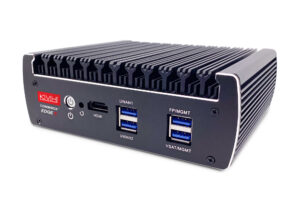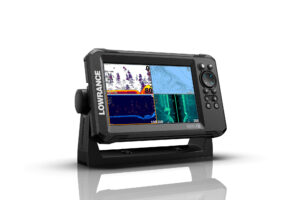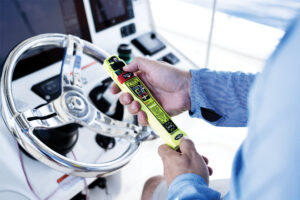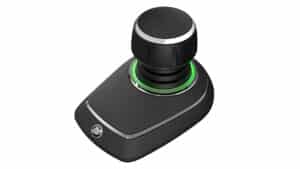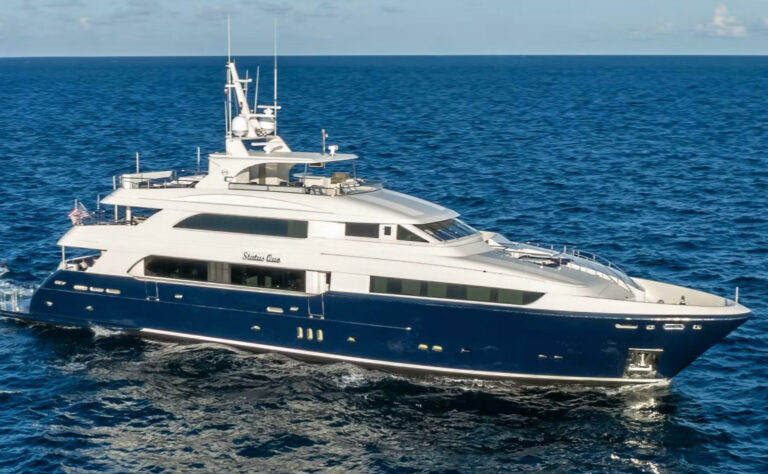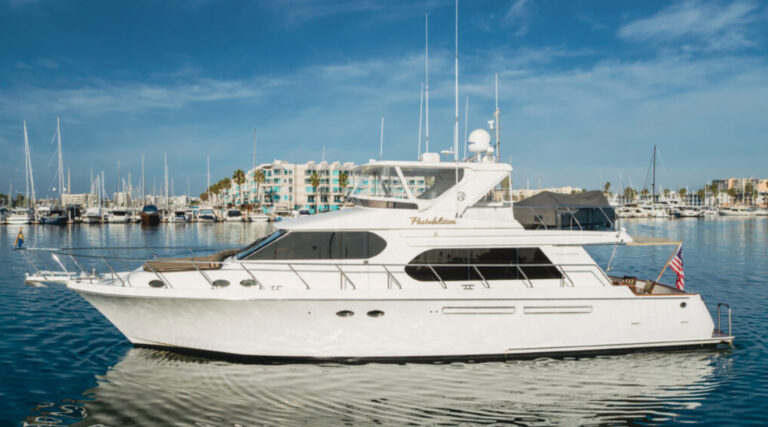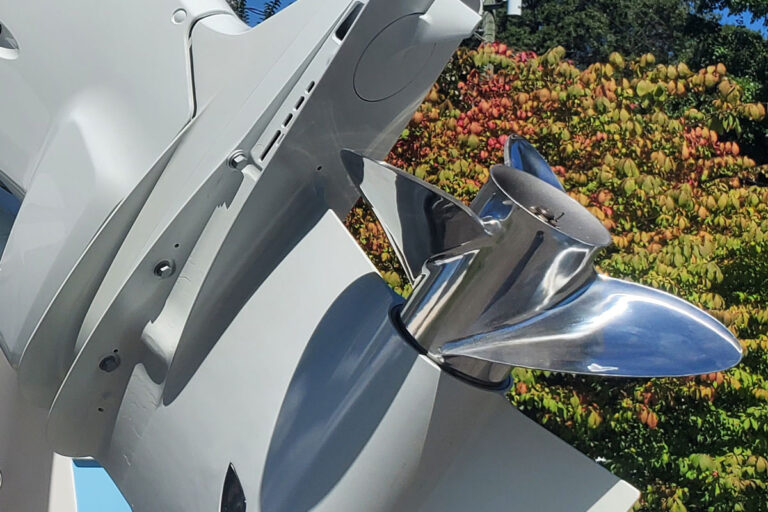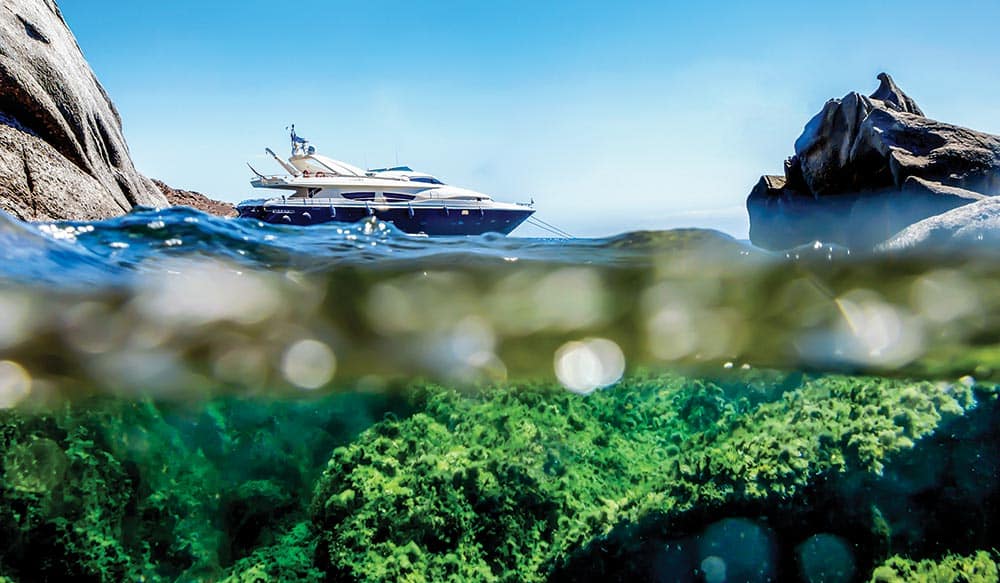
Greenhorn boaters sometimes struggle to grasp that some resource-intensive aspects of their onshore lives don’t translate to cruising. Take, for example, heedless freshwater consumption. While many landlubbers enjoy lengthy at-home showers, this practice is generally eschewed on board because fresh water must be carried or generated, practices that can use extra fuel or, worse, force an unplanned stop. Communications falls into a similar category, especially when checking email or streaming movies necessitates using the yacht’s satellite-communications system.
Luckily, for mariners who cruise coastally, there’s a higher-speed, lower-cost way of making calls, connecting to the internet and satisfying guests’ online expectations, sans satellites.
While it’s true that satellite communications have revolutionized boating by transforming dead zones into communications-rich environments offshore and when crossing oceans, the sticky wickets are speed and cost. Even today’s fastest single-antenna satellite connections — including new high-throughput satellite plans with maximum download speeds of 10 megabits per second (Mbps) and uplink speeds of 3 Mbps — are sluggish compared to land-based internet connections, which offer download speeds of (ballpark) 10 to 200 Mbps and uplink speeds of 2 to 25 Mbps. Plus, yacht owners can experience sticker shock when the satcom bill arrives, especially when data-thirsty guests have been aboard.
While this is sometimes just the cost of doing business offshore, inshore cruising affords different connectivity options. For example, Meridian4G’s cellular-based technology provides download speeds up to 160 Mbps and uplink speeds up to 40 Mbps for significantly less cost than satellite communications, so long as the yacht is cruising within 25 nautical miles of a robust 4G cellular umbrella.
Some backstory: In 2000, Meridian4G’s co-founder and chief technology officer, Julian Clemens, then working as an IT manager in the healthcare industry, was tasked with developing a technology that would allow hospitals to send and receive MRI images quickly. Given the prohibitive cost of fiber-optic internet connections, Clemens invented a way of combining numerous digital subscriber line (DSL) connections to allow far greater DSL speed. Clemens also added backup 3G technology that aggregated multiple cellular connections, each with a dedicated SIM card and modem, to create a high-speed, relatively low-cost data superhighway.
In-House Installs: Meridian4G’s systems are lightning-fast, but proper installation and integration are key. According to co-founder Julian Clemens, a yacht’s IT network can create blockages and slowdowns. Because of this, “We made a decision as a company that our resellers don’t install the equipment,” Clemens says.
In 2010, a friend in the superyacht industry suggested that Clemens’ technology could dramatically increase connectivity speeds for yachts cruising close to shore.
“It took me two and a half years to investigate, as water is a little bit special,” says Clemens, referring to the difficulties of dealing with radio-frequency energy and, well, oceans.
His first prototypes were ready by late 2010-11, and in 2012, Cellweaver (now Meridian4G) was launched. Now, “more than 150 yachts are using our technology as the primary source of internet on board, including such notable vessels as Eclipse and Pelorus,” says Dasha Grupman, Meridian4G’s co-founder and CEO.
Meridian4G’s systems, designed primarily for yachts 98 feet and larger, use four in-parallel 4G SIM cards and modems whose signals are combined. Information is transmitted and received as myriad tiny data packets, which SIM cards, modems and antennas tackle, a process that helps ensure secure communications. Meridian4G’s system automatically determines the most robust (speed and bandwidth) of its four cellular connections, and balances data loads among the SIM cards to create the fastest connection.
“We only use the cellular network to close the gap to the shore, and then it’s routed to one of our data centers,” Clemens says.
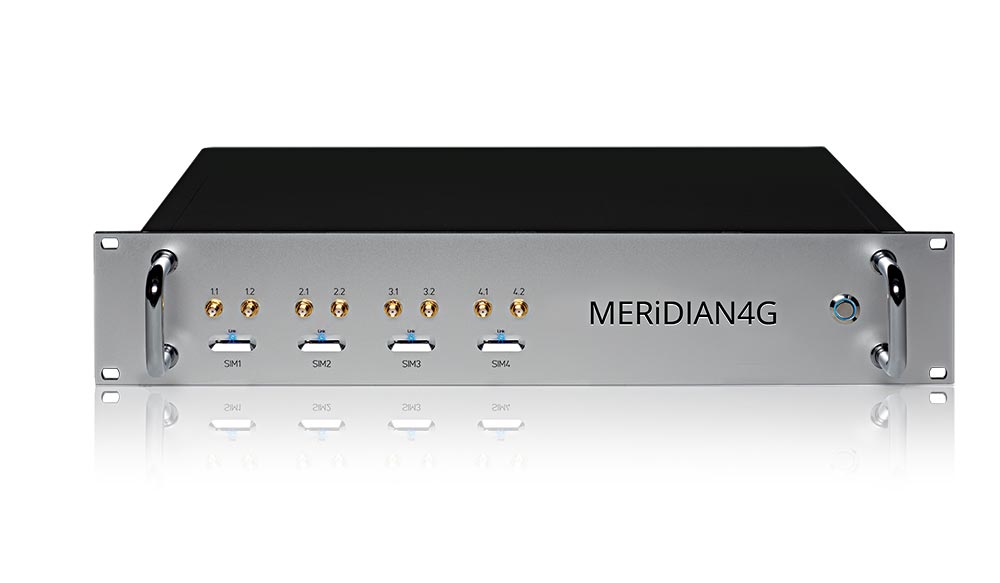
The result is a transmission scheme that starts, for example, as a Google query on a wireless device. It travels through the yacht’s IT system (see sidebar) to the Meridian4G system. There, it’s split into data packets, which are encrypted and then sent — via the SIM cards and modems — through Meridian4G amplifiers to antennas, which transmit them to land-based cellular towers. Once there, the transmissions are routed to a Meridian4G data center, where they are reaggregated and unencrypted, and then piped to the closest internet hub.
Received transmissions follow a reciprocal course to the yacht and, ultimately, to each user’s device.
In addition to Meridian4G’s aggregator machines, the system also includes one rack-mounted amplifier per antenna, and at least two MIMO (multiple-input, multiple-output) antennas, which allow for signal splitting and help prevent in-port signal blockages from nearby yachts or buildings. And each of the four SIM cards has a dedicated modem. While users can buy SIM cards from third-party GSM cellular carriers such as AT&T or Orange, Clemens says buying the cards directly through Meridian4G can avoid roaming hassles and slower speeds on some cellular networks.
“Our cards have proven to be the best because we have negotiated all [the terms] with local cellular carriers,” Clemens says.
In all cases, yachts will experience faster speeds and better bandwidth the closer they are cruising to shore-based cellular networks.
Given that different cellular networks use different operating frequencies in different regions, Meridian4G customers have historically needed one aggregator for the Americas, Bahamas and Caribbean, and a different aggregator for the rest of the world. To resolve this challenge, in January the company unveiled its Meridian4G World Unit (call for pricing). It’s a black-box solution designed for globe-girdling yachts.
So if you’re seeking faster, secure inshore communications, Meridian4G systems could complement your yacht’s current selection of radios and satcom equipment. And while SIM card-enabled airtime isn’t free, you and your guests can enjoy significantly higher-speed data with significantly less concern about a lurking hangover than when satcom carriers are catering the party’s open-data bar.

